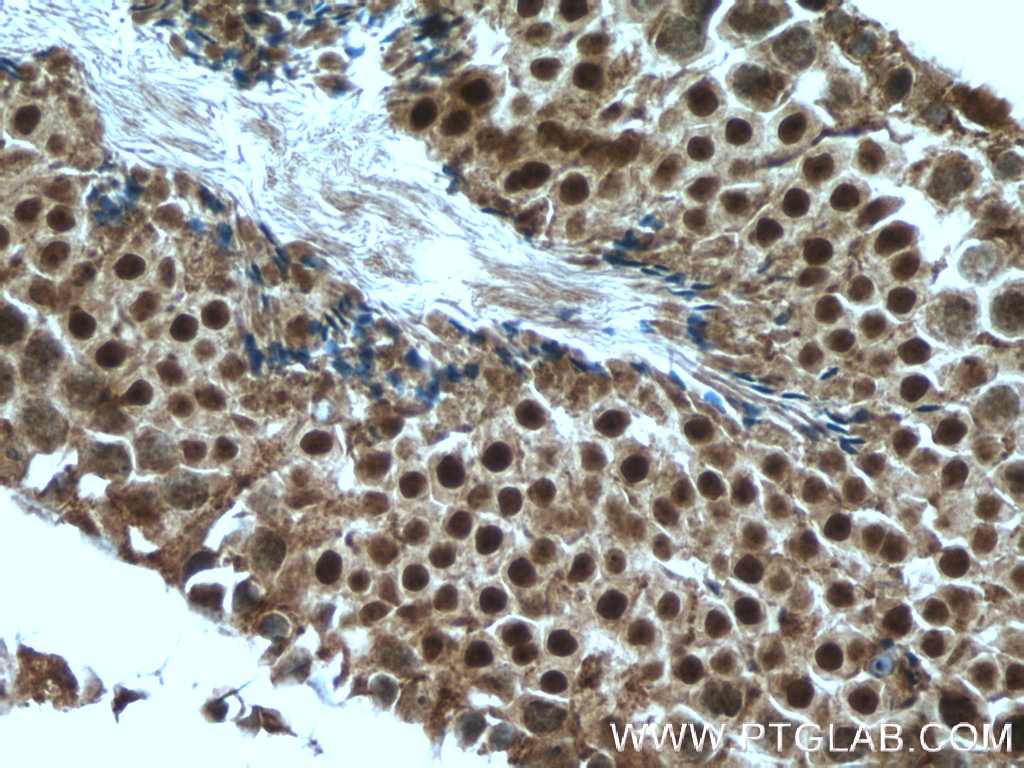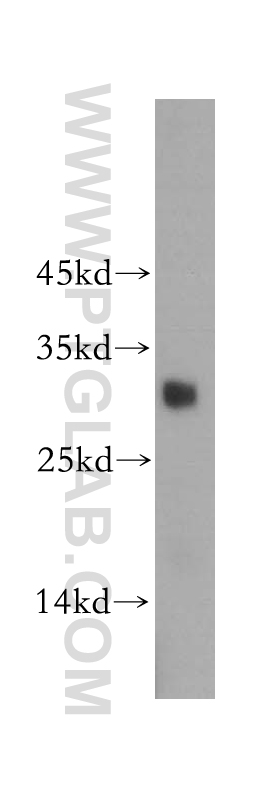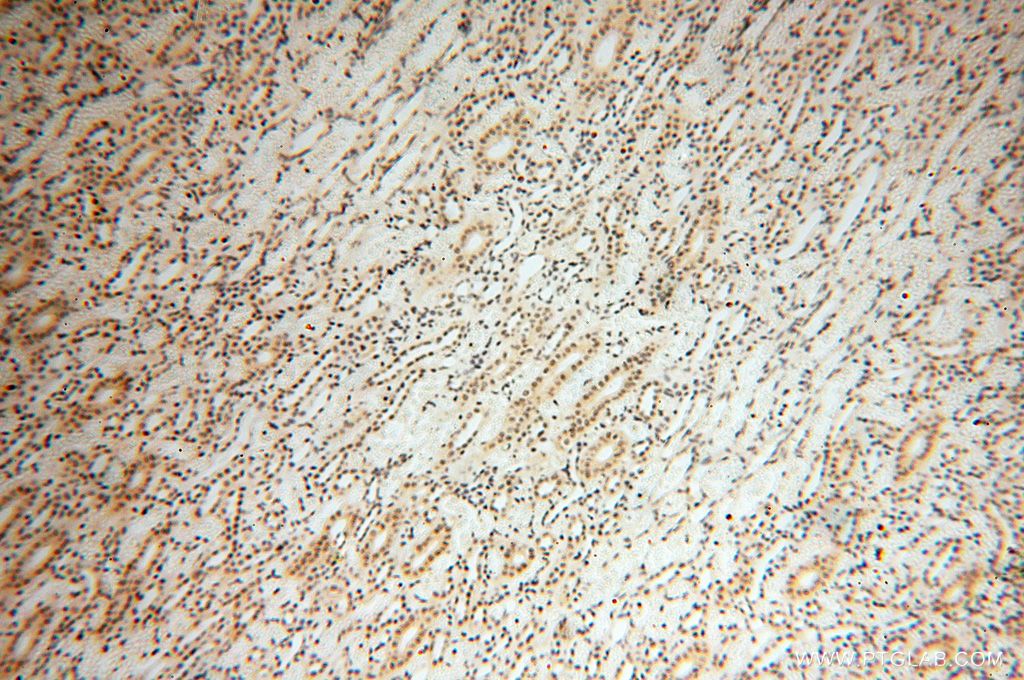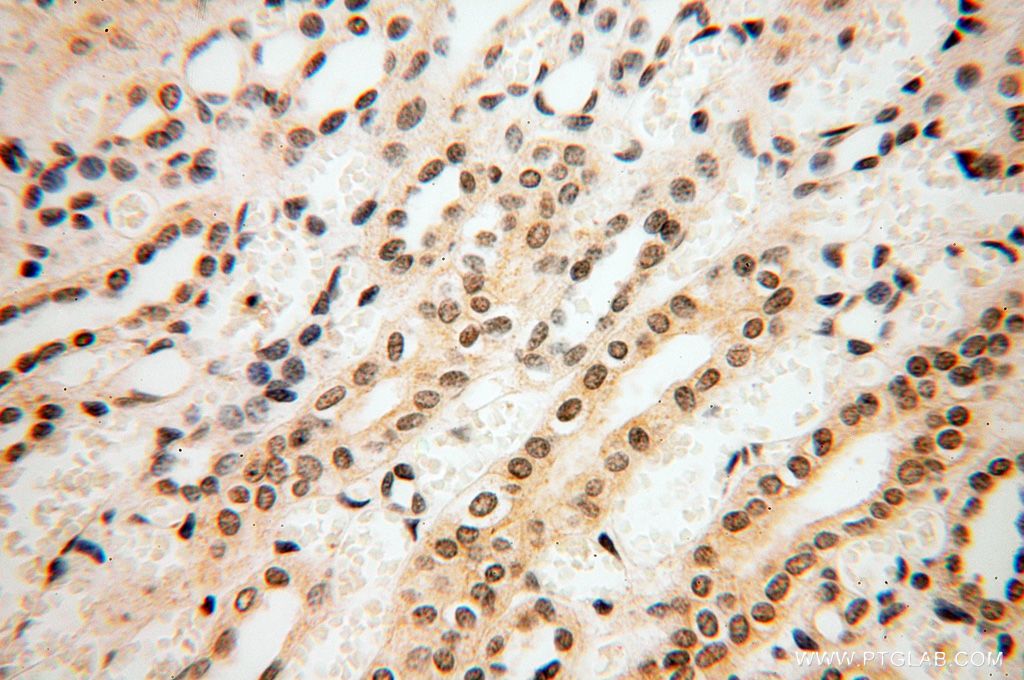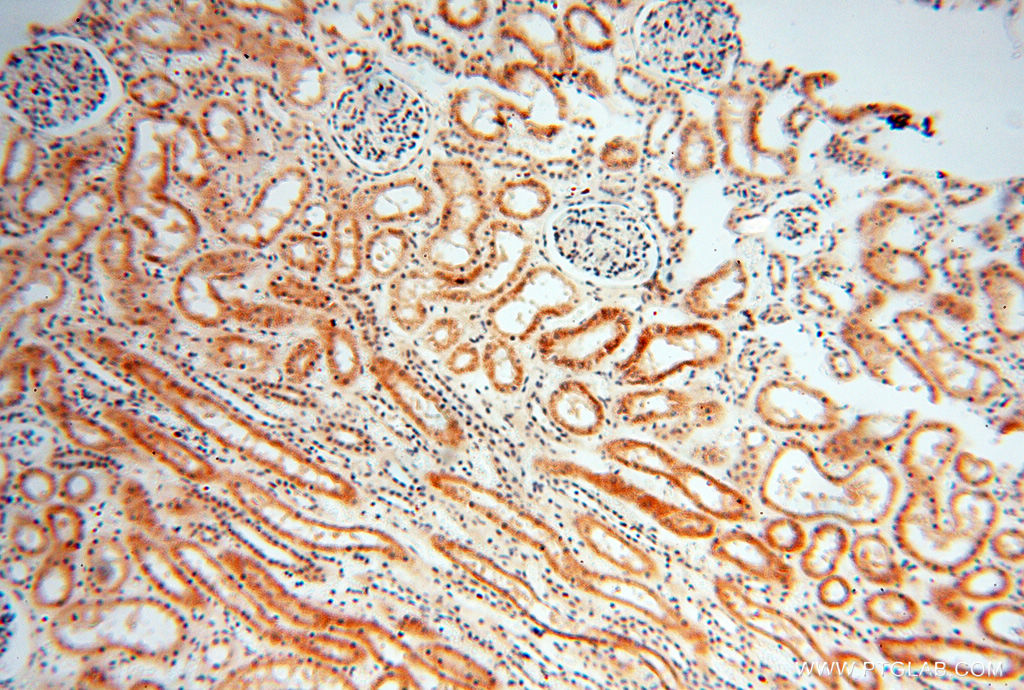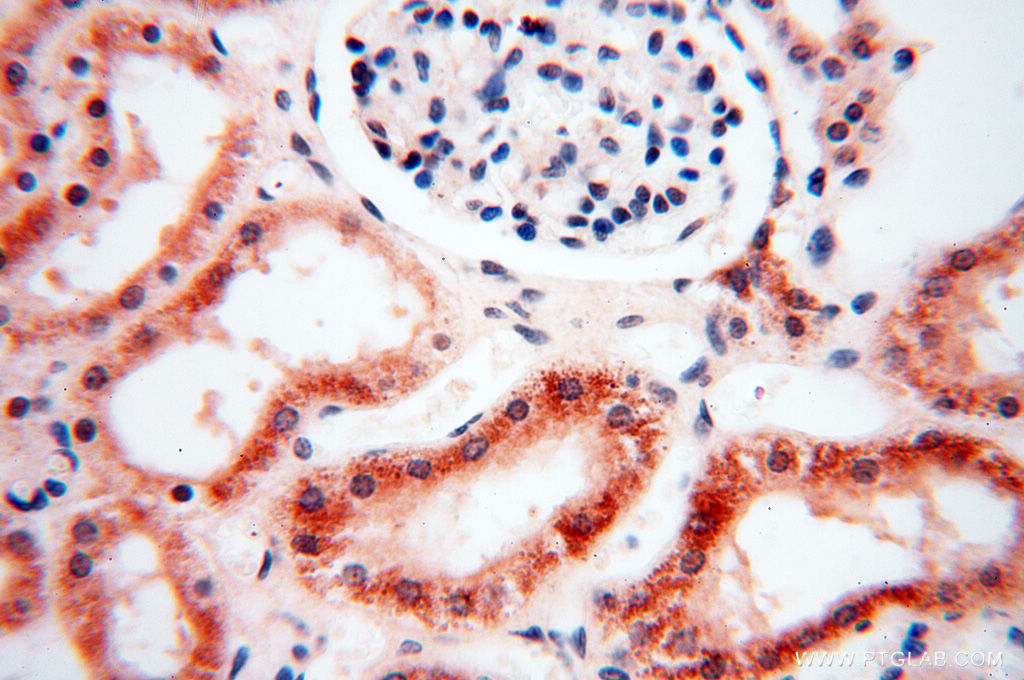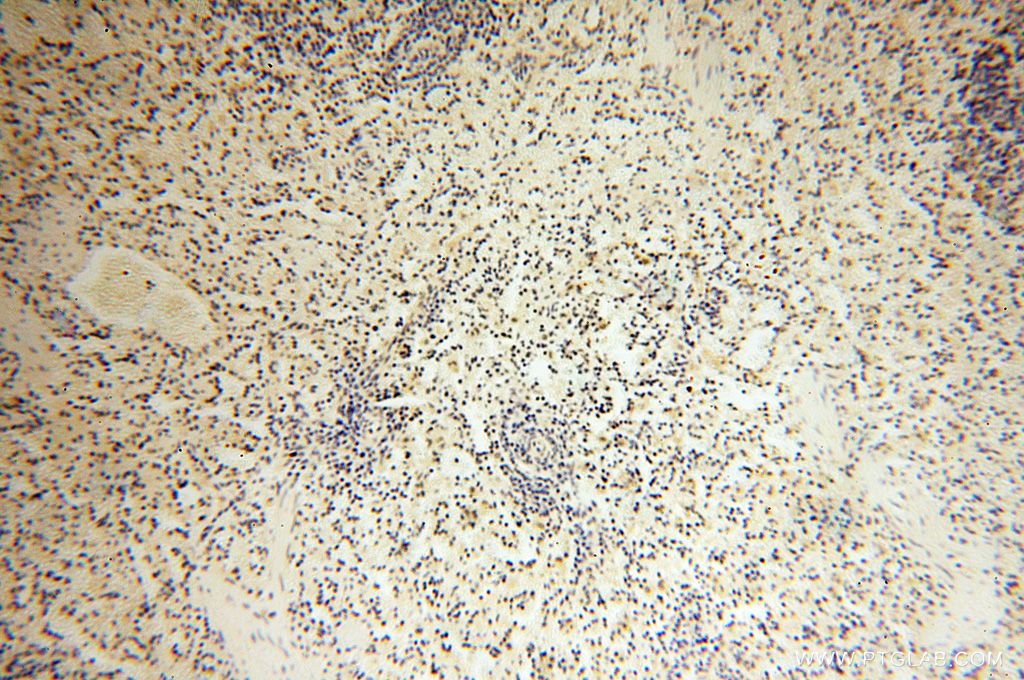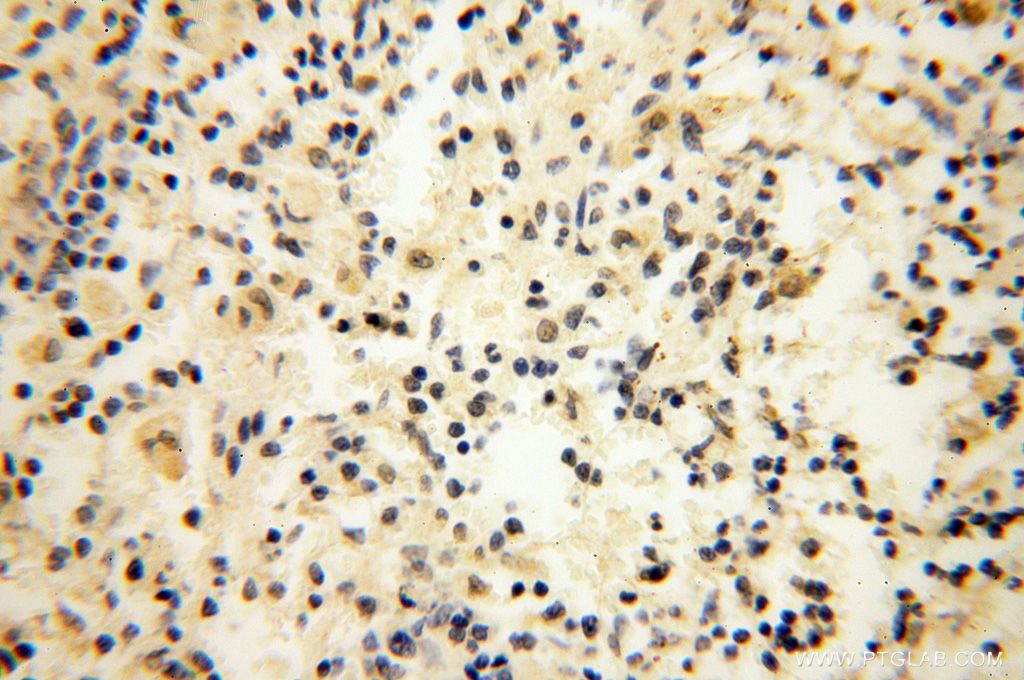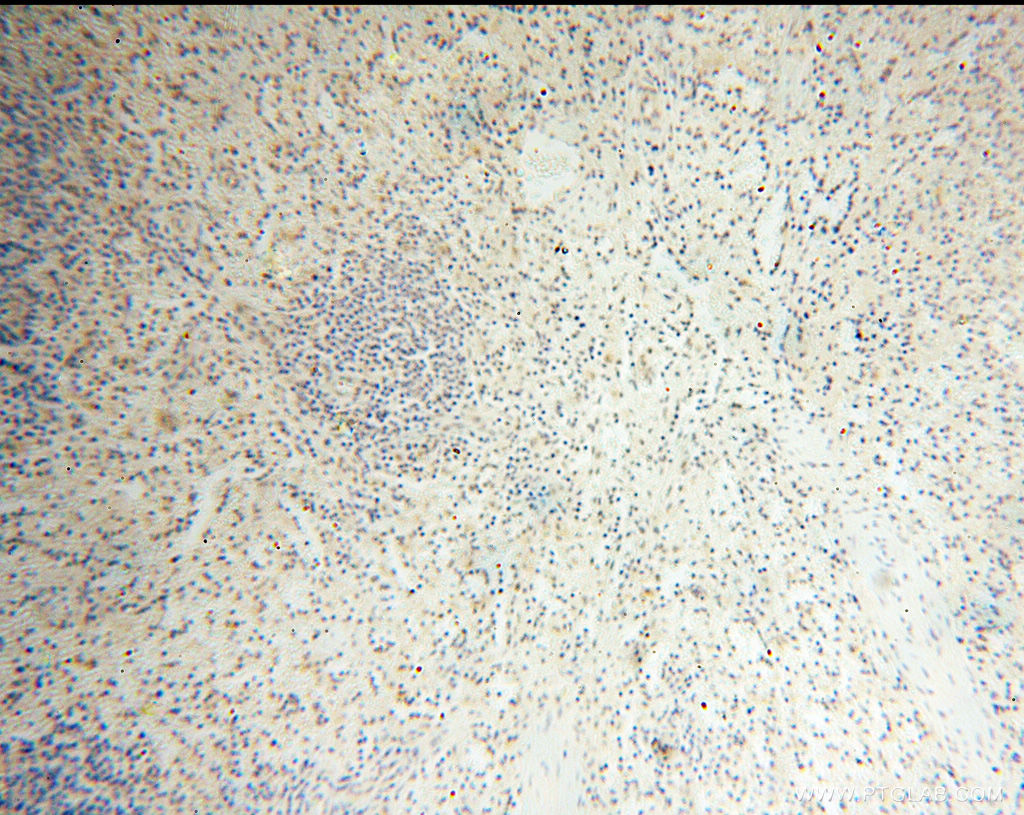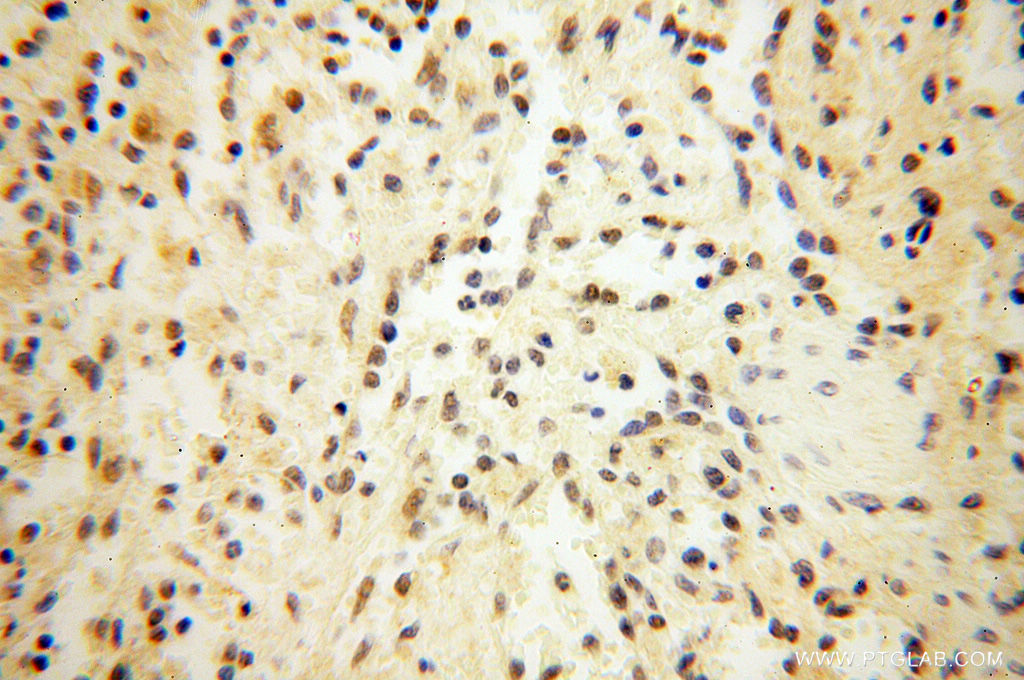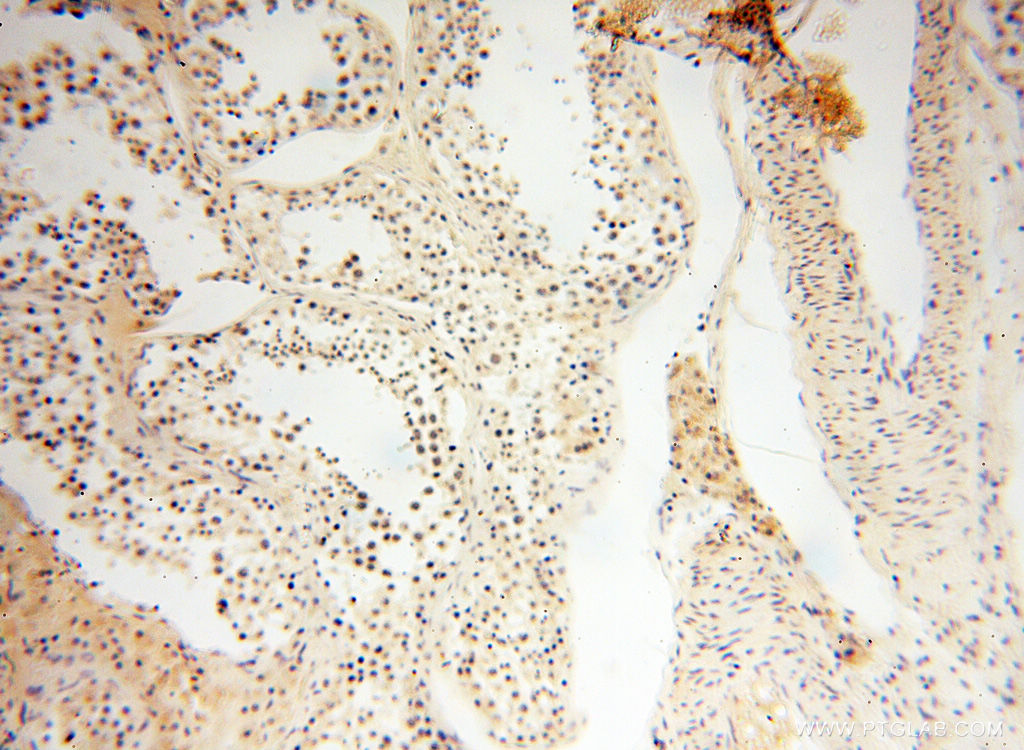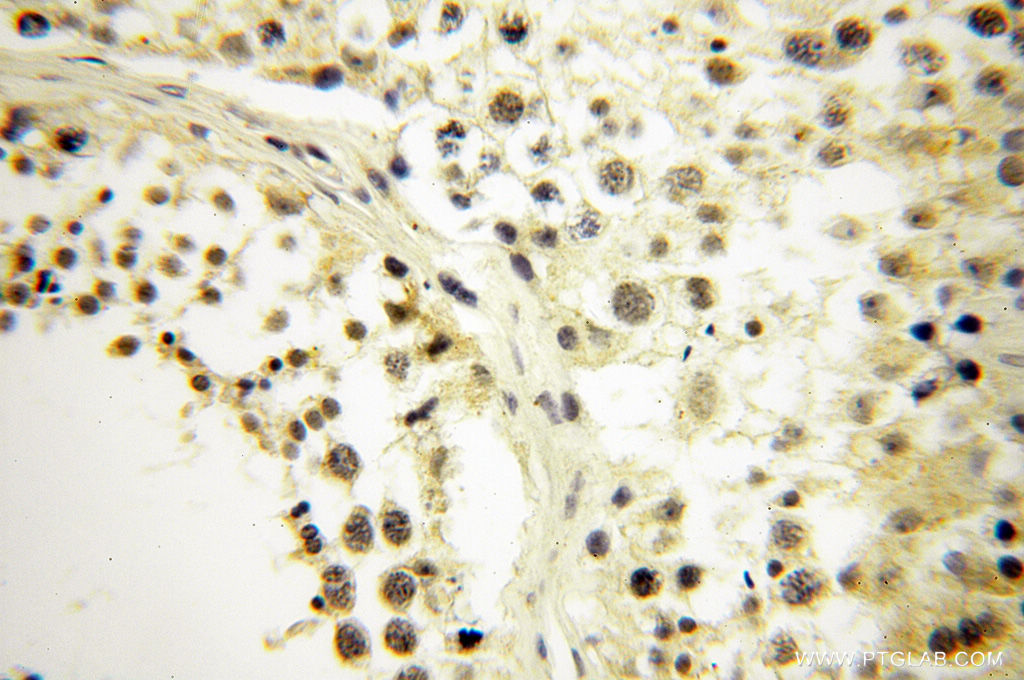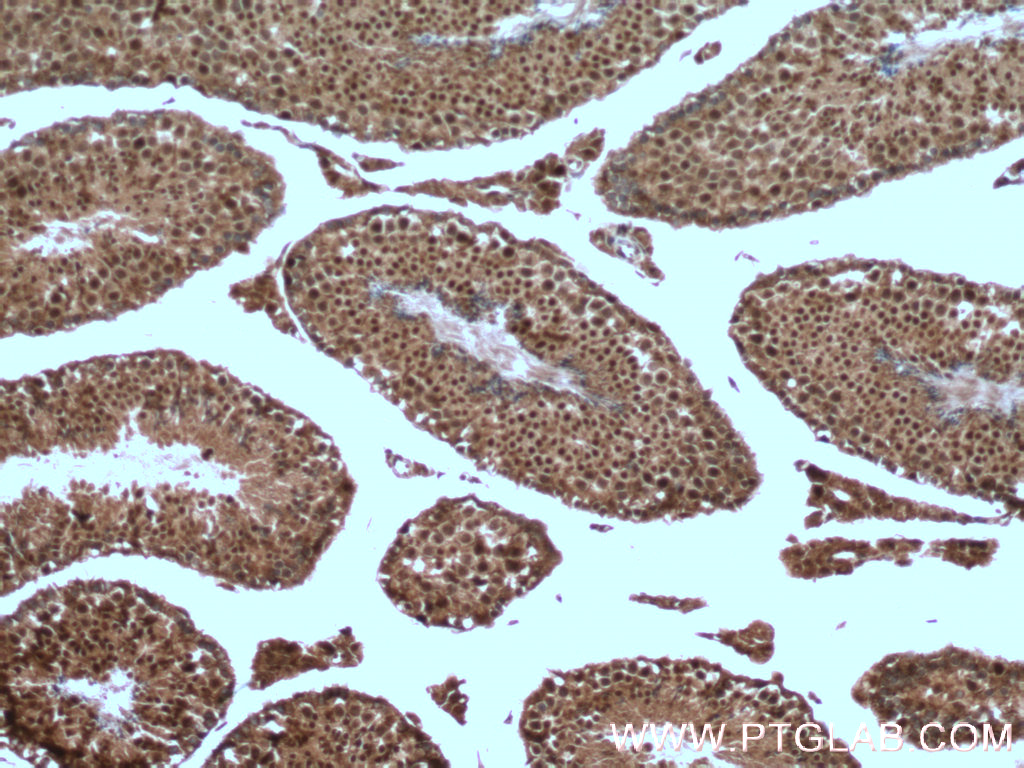验证数据展示
经过测试的应用
| Positive WB detected in | human testis tissue |
| Positive IHC detected in | mouse testis tissue, human testis tissue, human spleen tissue, human kidney tissue Note: suggested antigen retrieval with TE buffer pH 9.0; (*) Alternatively, antigen retrieval may be performed with citrate buffer pH 6.0 |
推荐稀释比
| 应用 | 推荐稀释比 |
|---|---|
| Western Blot (WB) | WB : 1:500-1:1000 |
| Immunohistochemistry (IHC) | IHC : 1:50-1:500 |
| It is recommended that this reagent should be titrated in each testing system to obtain optimal results. | |
| Sample-dependent, Check data in validation data gallery. | |
产品信息
17930-1-AP targets SRY in WB, IHC, ELISA applications and shows reactivity with human, mouse samples.
| 经测试应用 | WB, IHC, ELISA Application Description |
| 经测试反应性 | human, mouse |
| 免疫原 |
CatNo: Ag12360 Product name: Recombinant human SRY protein Source: e coli.-derived, PGEX-4T Tag: GST Domain: 1-204 aa of BC074924 Sequence: MQSYASAMLSVFNSDDYSPAVQENIPALRRSSSFLCTESCNSKYQCETGENSKGNVQDRVKRPMNAFIVWSRDQRRKMALENPRMRNSEISKQLGYQWKMLTEAEKWPFFQEAQKLQAMHREKYPNYKYRPRRKAKMLPKNCSLLPADPASVLCSEVQLDNRLYRDDCTKATHSRMEHQLGHLPPINAASSPQQRDRYSHWTKL 种属同源性预测 |
| 宿主/亚型 | Rabbit / IgG |
| 抗体类别 | Polyclonal |
| 产品类型 | Antibody |
| 全称 | sex determining region Y |
| 别名 | sex determining region Y, SRY, TDF, TDY, Testis determining factor |
| 计算分子量 | 204 aa, 24 kDa |
| 观测分子量 | 30 kDa |
| GenBank蛋白编号 | BC074924 |
| 基因名称 | SRY |
| Gene ID (NCBI) | 6736 |
| 偶联类型 | Unconjugated |
| 形式 | Liquid |
| 纯化方式 | Antigen affinity purification |
| UNIPROT ID | Q05066 |
| 储存缓冲液 | PBS with 0.02% sodium azide and 50% glycerol, pH 7.3. |
| 储存条件 | Store at -20°C. Stable for one year after shipment. Aliquoting is unnecessary for -20oC storage. |
背景介绍
SRY (sex-determining region Y protein) is a tran-scriptional activator required for male sex determination in mammals. This protein, also referred to as testis-determining factor (TDF), is an HMG box protein that initiates the formation of testis from undifferentiated gonad. The DNA-binding activity of SRY is required for normal testis formation. This DNA-binding activity is thought to be regulated by PKA, which phosphorylates SRY in vivo. Mutations in SRY have been associated with 46,XY gonadal dysgenesis, in which the gonads fail to develop in XY phenotypic females.

